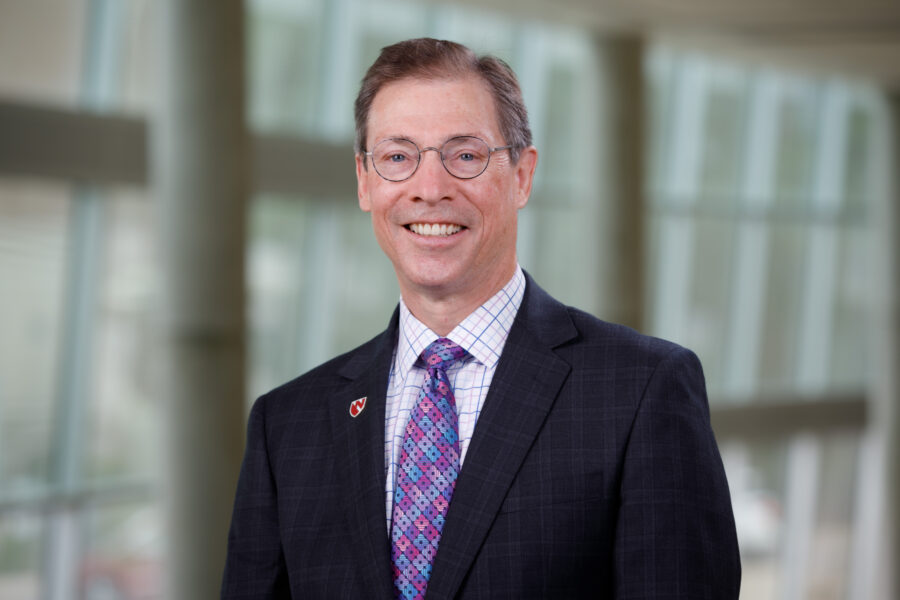by Karen Burbach, UNMC strategic communications | August 16, 2021
UNMC will launch a new master’s level respiratory therapy educational program to help meet workforce demands that are projected to increase 19 percent over the next decade.
The NU Board of Regents on Friday approved the program, which is one of only six “entry-level” master’s degree programs in the country (others are in Georgia, Illinois, Kentucky, North Dakota and Texas). Overall, there are currently eight respiratory care master-level programs in the United States (the other two being degree advancement and advanced practice programs).
“Respiratory therapists are vital members of the health care team,” said Kyle Meyer, PhD, dean of the UNMC College of Allied Health Professions (CAHP). “There is a need in Nebraska and the country for graduate-level prepared respiratory therapists, which has only increased with the COVID-19 pandemic.”
Respiratory therapists evaluate and treat people with heart and lung diseases ranging from acute respiratory tract infections and pneumonia to asthma, chronic lower respiratory disease and cystic fibrosis. In 2018, more than one-million individuals in Nebraska and its six contiguous states were living with chronic lower respiratory diseases.
The new entry-to-practice master’s degree program will consist of approximately 80 credit hours delivered over five semesters (21 months) and award a Master’s of Respiratory Care degree. The program will be open to students who complete pre-requisite coursework at an undergraduate accredited university, but will not require prior competence in respiratory therapy.
Dr. Meyer noted that leaders in respiratory care at Nebraska Medicine were integral in the development of the proposal, and that the proposal had strong support locally and nationally.
James Linder, MD, CEO of Nebraska Medicine, noted, “As the complexity of health care increases there is a need for respiratory therapists to manage more advanced technology and assume more advanced roles in patient assessment and treatment. We are grateful UNMC is leading the development of this program.”
The proposal also was endorsed by the National Board for Respiratory Care and the Coalition for Baccalaureate and Graduate Respiratory Therapy Education.
The program, which will be housed in the CAHP’s Department of Medical Sciences, is distinct, as most of the profession’s entry-level education historically has occurred at the associate-degree level.
However, the Commission on Accreditation for Respiratory Care indicated in 2016 that all newly accredited education programs must award, at minimum, a bachelor’s degree and urged that “training and education for entry-to-practice as a respiratory therapist should be provided within programs awarding a bachelor’s or master’s degree in respiratory care.”
UNMC began discussing a master’s level program in 2019, Dr. Meyer said. That same year, the American Association for Respiratory Care said that by 2030 all respiratory therapists should hold a baccalaureate degree or higher in respiratory care.
The proposal now moves on to final review by the Nebraska Coordinating Commission for Postsecondary Education (CCPE). If approved by the CCPE, UNMC plans to welcome its first cohort of 24 students in the fall of 2023.
